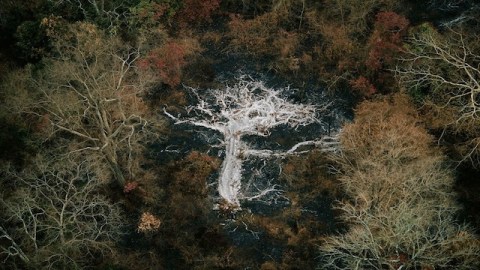Addressing the Mismatch Between Human Minds and Global Problems

The human mind readily grasps a revolution like Tunisia’s or the one in aborning in Egypt. We’re well-equipped mentally for a short-term crisis, especially one that involves the question of who is in charge, and who stands with whom in a struggle over power and principle. But that’s not the kind of revolution that global warming and other human-wrought changes are bringing all over the world. You can’t address overfishing or species-destruction or deforestation by overthrowing one regime, or marching in the streets, or changing your mind about your political stance. You address such problems by behavior we think of as personal and non-political: By no longer serving meat at weddings and funerals, and bicycling your child to grandma’s house instead of driving, and using a compost toilet.
So how do we fit our human-centered notions of politics to these kinds of problems? No one has figured that out yet. Among the most interesting (and gorgeous) attempts, though, are those of Yann Arthus-Bertrand, a photographer and filmmaker famous for his extraordinary aerial photography, who has lately devoted his talent to getting people thinking in a new way about the links between their smallest daily decisions—what to eat, what to ride to work—and the planet as a whole. That’s the point of his film Home. Before its theatrical release in the U.S. this year, the movie will be shown this afternoon at 2 P.M. at Columbia University in New York. It will be followed by a panel discussion, led by yours truly, in which climate and behavioral scientists will ponder the problem of fitting the global environmental crisis into a human mind that’s not really built to see it. The screening is free, so come and hear us out.
Photo: Remains of a burned tree, Ivory Coast (Photographer: Yann Arthus-Bertrand)




